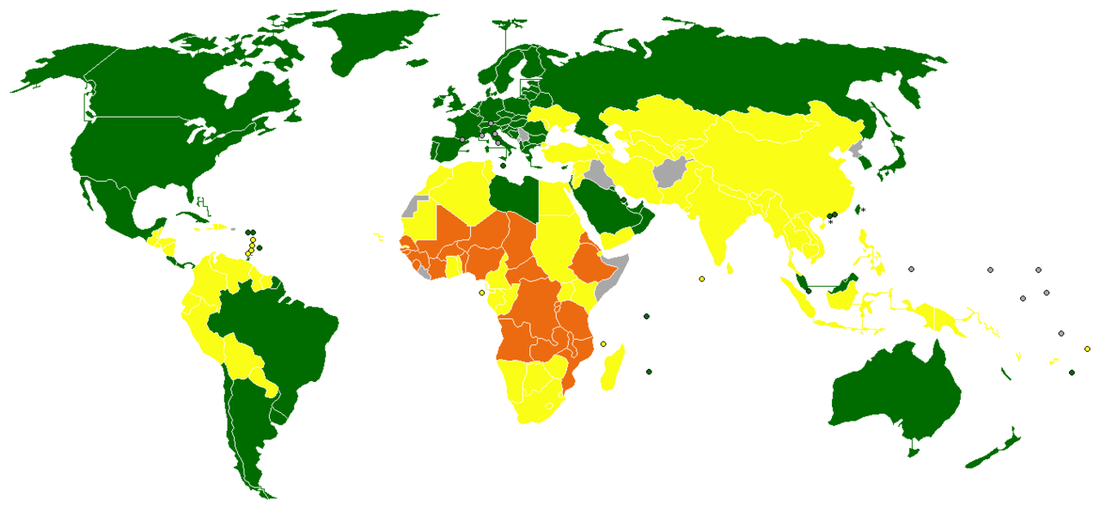Over the next 12 months, I’m going to learn the entire 4-year MIT curriculum for computer science, without taking any classes. All of the above statements were taken from Scott Young's website about his MIT Challenge. They have inspired me to undertake my own challenge, which I'll be sharing here as I go along. Right now I am in the planning stages and won't begin for another couple months as I attempt to get all my resources together. However, you can read the following, check for updates, and visit my Personal Projects page devoted to this challenge and any other that spring up in the future as I progress. Goal I plan to complete the entire John Hopkins Master’s of Science in Applied Economics with a focus on International and Development Economics in 6 months instead of the median 2.3 years (or seven semesters) via self-study and self-evaluation. Why? Mostly because it's a challenge. One I'm sure I can complete. One that others could too, but perhaps are afraid of being the first to try or of not receiving the accreditation they would deserve for such a large amount of work without following the standards of others. Scott completed a bachelor's degree and inspired to complete a master's degree. Maybe this will inspire another to complete a doctoral degree. I strongly believe in self-guided study and non-formal education. This can add to the body of literature available on those topics and prove that it can be done. Second, I already hold a master's degree and don't have any need of a second. I also have ZERO need of any more student loan debt. As Scott says above, "I want the education, not the school". Another reason is that I've told a handful of people that finishing my M.Ed. in 1.5 years instead of two was a joke. I could have easily done it in one, probably faster. This is one way of proving that. Furthermore, I want to be a part of the club that comprises professional economics. If education is the ability to join a conversation (a fabulous quote that I CANNOT remember where I heard), I want into that conversation at a higher level. And lastly, The natural place of evaluation in life is as a ticket of entrance, not as a club over the recalcitrant. Our experience in therapy would suggest that it should be the same way in school. It would leave the student as a self-respecting, self-motivated person, free to choose whether he wished to put forth the effort to gain these tickets of entrance. It would thus refrain from forcing him into conformity, from sacrificing his creativity, and from causing him to live his life in terms of the standards of others." - Carl Rogers Prior Learning I have a BA in economics and a BS in mathematics. I have also worked extensively as a teaching assistant and tutor in math and am currently teaching an IBDP economics course. I have also independently read hundreds of books, articles, and blogs on economics. I also have a master's of education, with a particular focus on literacy. While not related to economics, per se, my passion for reading and studying meta-learning gives me a large advantage. The fact that I am a working teacher also gives me the advantage of knowing how to write assessments and evaluate conceptual understanding. These skills will be very useful throughout the challenge. Criteria for the Outcome
The Plan
The Final Product/Outcome The product will be the completion of the M.S. with successful final exam grades and reflections through this blog. I will largely be weighing the value of my own insights against my previous learning and present need to understand the topic, both as a teacher and human with a natural ethical curiosity about the workings of the world and how people succeed within the constraints of their environment and finite resources. Economics is a mix of positive and normative statements about our world, particularly within the field of development where ethics often plays a large role. It is this convergence of ethics, decision making, and policy that most attracts me to development and what I will more than likely be focusing on throughout my reflections and study. Self-Evaluation The first obvious stumbling block will be whether or not I can get the professors on the syllabi I've downloaded to share their final exams and homework assignments with me. If that is not possible, then the other three criteria will still remain. Once I dive into the courses, I will most likely be using various formative assessments along the way, all of which I will document here. This entire project is largely to refine my own critical thinking skills about the topic and be able to apply those skills in evaluative situations as they relate to the world and decision making in general. I have no desire at the moment to use these skills in a professional sense, other than of course in my own classroom. Reflection All reflections will be done here within my website and blog. This is the first post of what will surely be many. Stay tuned. And keep in mind that, even if you feel like you've failed, you can win. Google cofounder Larry Page conce said, "Even if you fail at your ambitioius thing, it's very hard to fail comletely. That's the thing that people don't get." Cramming isn't pass-fail. Let's say you attempt culinary cram school - cramming six months into 48 hours - as I did. Let's then say that you retain only 40% of what was taught. If you develop the mototr patterns to continue practicing correctly, which is exactly what happened to me, did you fail? Of course not! Even 40% of six months means that you absorbed 2.4 months of skills in 48 hours!" - Tim Ferriss
0 Comments
Leave a Reply. |
Archives
November 2017
|

 RSS Feed
RSS Feed